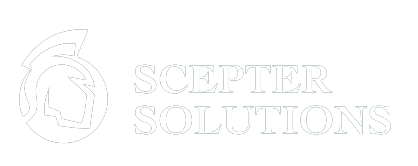What Every Housekeeping Team Should Know
Introduction
The hospitality industry is constantly evolving, and maintaining high standards of cleanliness is more critical than ever. As guests become increasingly conscious of health and hygiene, hotels need to keep up with the latest innovations in cleaning technology. These advancements not only improve the efficiency of housekeeping teams but also enhance the overall guest experience. From automated vacuuming robots to eco-friendly cleaning solutions, staying informed about the latest trends in hotel cleaning equipment is crucial for any housekeeping department aiming to excel in its role. Here, we explore some top innovations that are revolutionizing hotel cleanliness.
The Importance of Innovations in Hotel Cleaning
The hospitality industry is ever-evolving, and with it, the importance of maintaining impeccable standards of cleanliness has never been more critical. Innovations in hotel cleaning play a crucial role in meeting these standards, offering new ways to improve guest experiences, streamline operations, and reinforce environmental responsibility.
Ensuring Guest Satisfaction
Guest satisfaction is at the heart of every successful hotel operation. In today’s competitive market, guests expect not only comfort and amenities but also a spotless environment. Cleanliness directly influences guest reviews, loyalty, and overall satisfaction. With emerging cleaning technologies, hotels can ensure that even the most discerning guests are impressed. High-tech cleaning equipment, such as UV light disinfectors and electrostatic sprayers, can eliminate pathogens more effectively than traditional methods, ensuring that rooms are not only visibly clean but also hygienically safe.
Improving Efficiency in Housekeeping
Efficiency is a critical component of successful housekeeping operations. Innovations in cleaning equipment can lead to significant time savings, allowing housekeeping staff to manage their duties more effectively. For instance, vacuum cleaners with HEPA filters and smart features can cut cleaning time while ensuring high air quality in guest rooms. Additionally, automated supply systems can ensure that housekeeping cart essentials are always stocked, reducing unnecessary trips and optimizing workflows. This not only helps in improving turnaround times for room turnovers but also in conserving staff energy for more intensive tasks.
Environmental Benefits
Sustainability continues to be a focal point for the hospitality sector. New cleaning technologies often come with the added benefit of being environmentally friendly. For instance, ozone cleaning systems reduce the need for harsh chemicals, which not only lessens environmental impact but also creates a safer working environment for staff. Water-efficient cleaning machines and biodegradable cleaning products support water conservation efforts and reduce the hotel’s overall ecological footprint. Adopting these innovations not only aligns with corporate responsibility goals but also appeals to the growing demographic of eco-conscious travelers.
Robotic Cleaners
As technology advances, robotics has made its way into various facets of the hospitality industry, including cleaning. Robotic cleaners represent a significant leap forward in maintaining high standards of cleanliness while allowing staff to focus on more demanding tasks.
Types of Robotic Cleaners
Robotic cleaners in hotels come in various forms, each designed for specific cleaning tasks:
– Robotic Vacuums: These devices autonomously navigate and clean carpeted areas, suitable for both large conference halls and smaller guest rooms.
– Floor Scrubbers: Ideal for expansive lobbies and dining areas, they can efficiently clean large, tiled surfaces.
– Window Cleaning Robots: These devices ensure spotless windows, capable of handling both indoor and outdoor glass surfaces.
Each type of robotic cleaner offers unique advantages, making them valuable additions to a hotel’s housekeeping arsenal.
Advantages over Traditional Methods
The use of robotic cleaners presents several benefits over traditional cleaning methods. First, they operate with high precision and consistency, ensuring that cleanliness is maintained at all times. Robots can clean during off-peak hours, minimizing disruptions to guests. Autonomous operation means housekeeping staff can dedicate their time to tasks that require a human touch, such as personalized guest interactions. Furthermore, robots are equipped with sensors and artificial intelligence, enabling them to adapt to different environments and efficiently cover large areas.
Cost and Implementation Considerations
While robotic cleaners offer numerous advantages, cost and implementation must be carefully considered. Initial investment may be substantial, but it should be evaluated against long-term savings in labor costs and increased lifespan of clean facilities. Potential challenges include the integration of robotic cleaners into existing housekeeping routines and ensuring that staff are adequately trained to operate and maintain the equipment. However, once implemented, these robotic helpers can become a vital part of enhancing both efficiency and guest satisfaction in hotel operations.
Incorporating these innovations and technologies into hotel cleaning practices ensures not only a competitive edge but also a commitment to excellence in service. Each step toward modernization enhances the guest experience, operational efficiency, and environmental stewardship, making it a win-win scenario for hotels and their clientele alike.
UV-C Disinfection Technology
In the hotel industry, maintaining impeccable cleanliness standards is not only a priority but also a promise to guests for their safety and comfort. Recent innovations in UV-C disinfection technology have revolutionized how housekeeping teams tackle cleanliness challenges, ensuring that even the most stubborn germs and bacteria are eradicated efficiently.
How UV-C Technology Works
UV-C light is a type of ultraviolet light that falls within a specific range of wavelengths, effective at killing microorganisms. When applied to surfaces, UV-C lights rupture the DNA or RNA of pathogens, rendering them harmless. This method goes beyond traditional cleaning, reaching into the microscopic crevices that standard cleaning practices might miss. UV-C technology is implemented in portable lamps and robotic devices that pass over surfaces, ensuring every inch of a room receives adequate exposure to these potent rays.
Effectiveness in Eliminating Germs
The effectiveness of UV-C disinfection is impressive, capable of killing up to 99.9% of pathogens, including viruses, bacteria, and fungi. This makes it a powerful tool in the fight against contagions, especially those that are resistant to chemicals or that may linger on surfaces despite thorough manual cleaning. As hoteliers seek to reassure guests about their commitment to health and safety, UV-C disinfection offers an unparalleled level of assurance and confidence.
Adoption in Hotels
Many hotels have already started integrating UV-C technology into their cleaning regimens, often using it to sanitize hard-to-clean areas, such as remote controls, door handles, and light switches, where germs are most likely to reside. The adoption of this technology not only enhances cleanliness but can also be a marketing point, showcasing a property’s commitment to innovative cleanliness solutions. As the technology becomes more affordable, widespread adoption seems likely, continually raising the bar for hotel hygiene standards.
Advanced Vacuum Systems
Another facet of hotel cleanliness that has seen significant innovation is the world of vacuum systems. Housekeeping teams are increasingly equipped with advanced vacuum technologies that improve air quality and ensure meticulous removal of debris from room surfaces.
High-Efficiency Particulate Air (HEPA) Filters
HEPA filters are renowned for their ability to capture small particles down to 0.3 microns with an efficiency of 99.97%. This level of filtration is crucial in hotel settings where air quality is linked directly to guest satisfaction and health. By trapping pollen, dust mites, and other allergens, vacuums with HEPA filters help in maintaining fresher, healthier environments.
Cordless and Compact Designs
Cordless vacuum cleaners have become a game-changer for housekeeping teams, offering freedom of movement and ease of use. These models eliminate the hassle of finding power outlets and navigating around cords, which can slow down the cleaning process. Moreover, compact designs make these vacuums ideal for maneuvering in tight spaces typical of hotel rooms and suites, further enhancing cleaning efficiency.
Multipurpose Cleaning Capabilities
Today’s vacuum systems do more than just vacuum. Many models come with multipurpose functions, such as steam cleaning capabilities or attachments for various surfaces, which allow housekeeping teams to tackle a wide range of cleaning tasks with a single piece of equipment. This versatility not only reduces the number of devices a team must carry but also speeds up the cleaning process, resulting in cleaner rooms in less time.
These advancements in hotel cleaning equipment, from UV-C technology to cutting-edge vacuums, underscore the hospitality industry’s commitment to incorporating the latest innovations to achieve superior cleanliness. As these technologies become more prevalent, hotels can continue to meet the increasing standards and expectations of modern travelers. Housekeeping teams armed with these tools are better equipped than ever to deliver a pristine environment, enhancing guest experiences and fostering lasting impressions.
Eco-Friendly Cleaning Solutions
In recent years, eco-friendly cleaning solutions have gained significant traction in the hospitality industry. As travelers become more environmentally conscious, hotels are tasked with adopting sustainable practices without compromising cleanliness. Let’s explore some innovative eco-friendly products and techniques that are reshaping hotel housekeeping.
Biodegradable Products
One of the most effective ways hotels can ensure an eco-friendly cleaning process is by utilizing biodegradable products. These cleaning agents are formulated to break down quickly and safely into natural substances, minimizing their impact on the environment. Not only do they offer a green alternative to traditional chemical-laden cleaners, which can be harmful to guests and staff, but they also contribute positively to a hotel’s sustainability goals. Housekeeping teams now have access to an array of biodegradable options, from all-purpose cleaners to specialized bathroom and surface disinfectants.
Concentrated Formulas for Reduced Waste
Another game-changer in the realm of eco-friendly cleaning solutions is the introduction of highly concentrated formulas. These products offer several advantages, most notably the reduction of plastic waste. Concentrated cleaners come in smaller bottles, yet they can be diluted to produce large quantities of cleaning solution, significantly reducing packaging waste. Furthermore, acquiring concentrated products decreases transportation emissions due to their reduced size and weight, allowing hotels to maintain a lighter carbon footprint.
Impact on Hotel Brand Image
Implementing eco-friendly cleaning solutions does more than just benefit the environment; it can also enhance a hotel’s brand image. Guests today appreciate and seek out establishments that prioritize sustainability. By adopting green practices in their housekeeping operations, hotels can appeal to this growing demographic of eco-conscious travelers. Such initiatives not only enhance a hotel’s reputation for corporate responsibility but also potentially increase guest loyalty and satisfaction, driving positive reviews and repeat visits.
Conclusion
Innovations in hotel cleaning equipment are not just about boosting efficiency but also about ensuring enhanced guest satisfaction and safety. With the integration of eco-friendly cleaning solutions and cutting-edge robotic technology, housekeeping teams can perform their duties more effectively and sustainably. Employing tools equipped with IoT capabilities and real-time monitoring can significantly improve operational transparency and accountability. By staying abreast of these innovations, hotels can provide a consistently high level of cleanliness, creating a welcoming and healthy environment for all guests.



